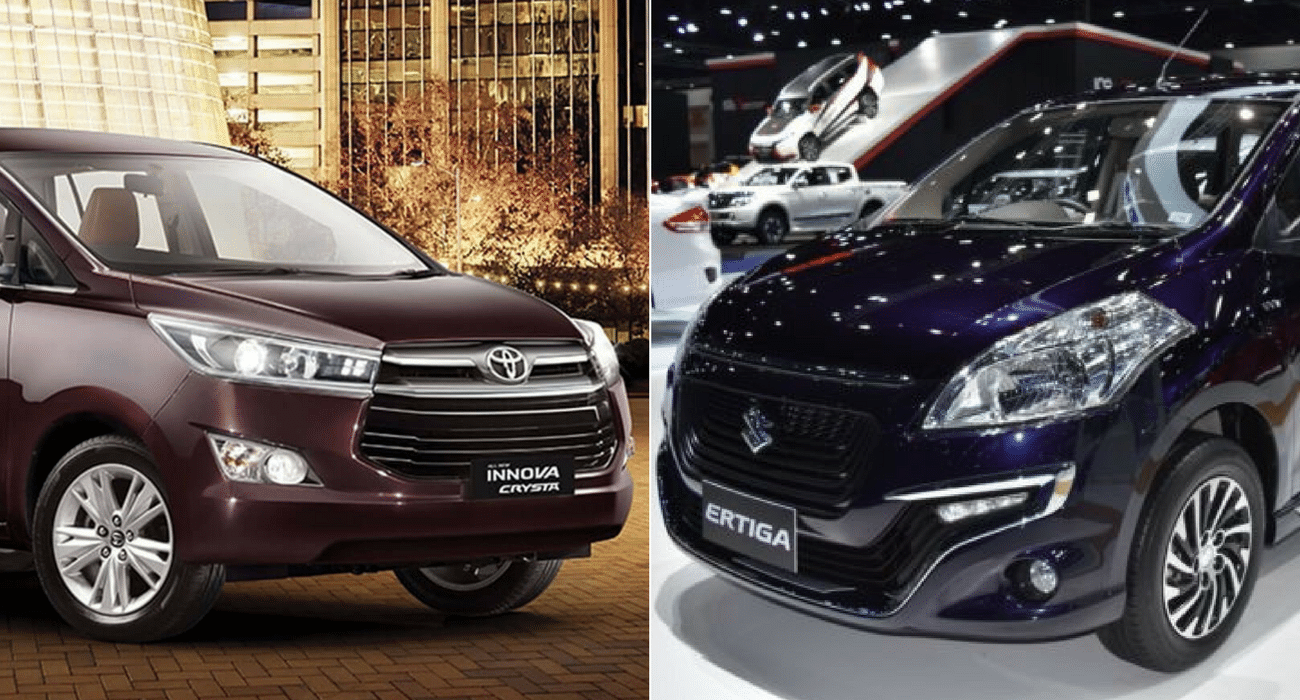Maruti Suzuki and Toyota have partnered at a global level to share their technologies with each other. Now both of them have made a cross branding deal to supply cars to each other starting next year, which will increase competition in Indian market. Meanwhile, for the first time the new Suzuki Ertiga was showcased at the annual Indonesia Auto Show.
However, it seems that both the companies are having different views on the shared models and competition among themselves.
New Maruti Suzuki Ertiga
This new Ertiga is expected to hit the Indian market by late 2018 or early 2019 and will have features of both petrol and diesel engines. The new Suzuki Ertiga will have a similar design like the new Toyota Innova Crysta. Therefore, there will be a competition between Maruti and Toyota in this segment.
Probable Clashes and Advantages from the deal
As part of this deal, Toyota will start selling Maruti Suzuki’s Brezza (mini SUV) and Baleno compact from next year and Maruti Suzuki will sell Toyota’s Corolla sedan under its own brand. Corolla will fulfill the gap of missing luxury segment sedan and failure of Kizashi whereas Brezza will fill the empty mini SUV segment of Toyota. On the other hand, Baleno will clash with Etios segment of Toyota.
Maruti will supply Toyota Motor with 30,000 to 50,000 units of the Maruti Suzuki Baleno and Vitara Brezza compact SUV. In return, Toyota will supply Maruti Suzuki with about 10,000 units of the Corolla in both hybrid and petrol models. Both the companies have also planned to launch jointly developed electric vehicles by 2020.
Toyota Motor through the select models will be able to increase its presence in the premium segment through India’s biggest carmaker/seller Maruti Suzuki as the Indian market matures.
Maruti Suzuki from the deal will be able to access Toyota’s R&D to develop electric and hybrid vehicles in the long-term. Moreover, Toyota through this tie-up would result in improving their position in the North American and European markets with other competitors.
On the other hand, the competitors through speculated Renault -Nissan alliance have used partnerships to lower costs of their vehicles. For this Toyota has to bring the shared vehicle’s price to the level of Maruti’s pricing.
Additionally, through the partnership Toyota will able to get access to the strong supplier network of Maruti Suzuki, and Toyota could manufacture more of low-cost cars at a competitive price. However, no official statement is made till now from the Indian arms of both companies.
Maruti Suzuki, don’t have any such partnerships and the last time when Maruti tied with Volkswagen AG, the experience did not turned out good. Overall, the deal is a win-win situation for both the companies, but they have to see that they do not fall in unnecessary war among themselves.












Pingback: Maruti Suzuki Q4 Earnings Dipped: Should You Remain Invested?
Pingback: Maruti Suzuki Jimny Launch Marks Goodbye to Gypsy and Counters Jeep